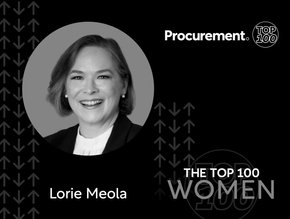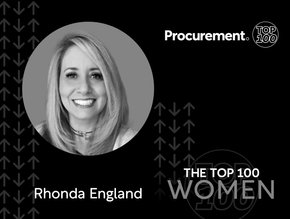How procurement is helping Colgate to net-zero

The company has been addressing climate change concerns for over two decades, and accelerating action on climate change was core to their 2025 Sustainability & Social Impact Strategy.
Procurement, supply chain and manufacturing considerations play a significant part of their wider strategy to achieve their ambitions sustainability goals.
Supply Chain Engagement
The sourcing of ingredients and packaging accounts for about 80% of Colgate’s Purchased Goods and Services emissions, so they are working directly with suppliers who represent the vast majority of their ingredients and packaging emissions.
They are also continuing to identify the ingredients and packaging materials in products that have the highest carbon impacts. Their research and development, procurement and commercial teams are working to leverage this information to help identify and prioritise opportunities through material and supplier choices without negatively affecting consumer experience, quality or cost.
Since 2008, Colgate has requested that key Tier I suppliers participate in the CDP Supply Chain Climate Disclosure Program to help address climate change, as well as associated risks and opportunities in their upstream supply chain.
Deforestation and palm oil production
The company says they recognise that deforestation and forest degradation contribute
significantly to the release of GHGs. Their action plan details efforts to protect the environment through sourcing practices that are focused on key forest risk commodities, including palm oil, soy-based products, pulp and paper-based packaging and beef (tallow). They have developed and implemented commodity-specific policies for palm and soy that
outline our expectations for suppliers of these materials and have an overarching No Deforestation Policy that applies to the four key forest risk commodities they source. Colgate-Palmolive works closely with external partners, stakeholders and peers to take action to protect at-risk ecosystems and forests and work closely with local farmers, communities, governments and their supply chain to mitigate the risks of deforestation.
One such example is through the work we conduct as a member of the Consumer Goods Forum—Forest Positive Coalition.
Society and cross-function collaboration
Their action plan includes how the company is working to embed sustainability into their products and brands through cross-organisation collaboration. Their research and development and procurement teams are working to design more sustainable products without negatively impacting quality, consumer experience or efficacy and accessibility. This can help enable more equitable access to carbon improved carbon profile as markets shift with the transition to Net Zero.
For each Colgate functional area, such as operations, procurement and logistics and their associated carbon scopes, they have also developed clear target boundaries, glide paths and tactics to guide their associated decarbonization plans.
Green energy development
Colgate-Palmolive also recently announced it has signed a 20-year virtual power purchase agreement (VPPA) for a solar energy farm outside of Waco, Texas. The new 209-megawatt Markum Solar Farm will be a long-term source of clean, renewable energy in the United States. With start-up anticipated in 2025, the project is expected to produce the equivalent of 100% of the Company’s U.S.-based operational electricity procurement needs.
“Colgate is committed to making progress towards our ambitious Net Zero goals, and we are pursuing this important priority through innovative and diverse ways that are proven and measurable,” said Ann Tracy, Chief Sustainability Officer. “Renewable energy agreements are a valuable part of our renewable energy master plan and will help us achieve our targets of Net Zero carbon emissions by 2040 and 100% renewable electricity across our global operations by 2030.”
*************************************************
For more insights into Procurement & Supply Chain - check out the latest edition of Procurement Magazine and be sure to follow us on LinkedIn & Twitter
Other magazines that may be of interest - Supply Chain Magazine | Sustainability Magazine
*********************************************
BizClik is a global provider of B2B digital media platforms that cover 'Executive Communities' for CEOs, CFOs, CMOs, Sustainability Leaders, Procurement & Supply Chain Leaders, Technology & AI Leaders, Cyber Leaders, FinTech & InsurTech Leaders as well as covering industries such as Manufacturing, Mining, Energy, EV, Construction, Healthcare + Food & Drink.
BizClik, based in London, Dubai & New York offers services such as Content Creation, Advertising & Sponsorship Solutions, Webinars & Events.
- What is The White House's Sustainable Procurement Programme?Sustainability
- How procurement strategy will help Mars reach net-zeroSustainable Sourcing
- Inspired PLC: a leader in energy cost & net-zero strategiesSustainable Sourcing
- Inspired PLC: a leader in energy cost & net-zero strategiesSustainable Sourcing






